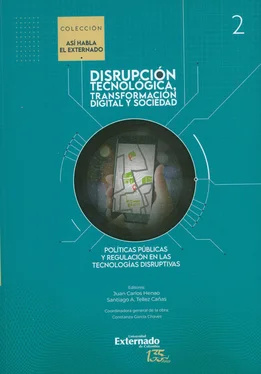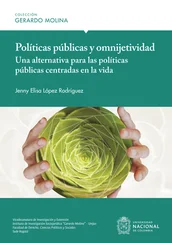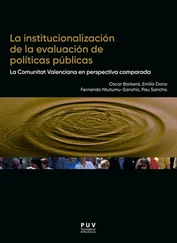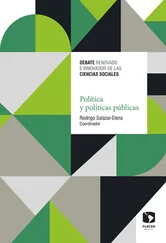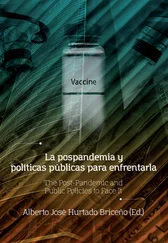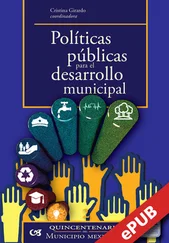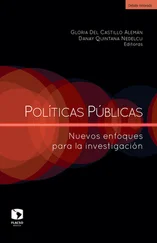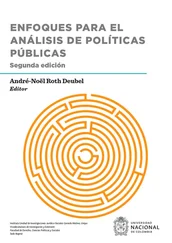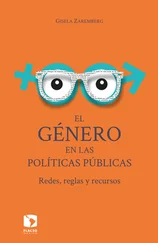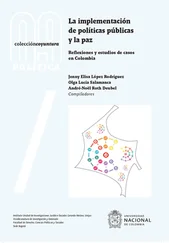BARTON, N. T.-L.; PAUL RESNICK & GENIE (2019, mayo 22). Algorithmic bias detection and mitigation: Best practices and policies to reduce consumer harms. Brookings . Disponible en: https://www.brookings.edu/research/algorithmic-bias-detection-and-mitigation-best-practices-and-policies-to-reduce-consumer-harms/
BRADY, H. E. (2019). The Challenge of Big Data and Data Science. Annual Review of Political Science , 22 (1), 297-323. Disponible en: https://doi.org/10.1146/annurev-polisci-090216-023229
BUSUIOC, M. (2020). Accountable Artificial Intelligence: Holding Algorithms to Account. Public Administration Review , n/a (n/a). Disponible en: https://doi.org/10.1111/puar.13293
CABROL, M.; GONZÁLEZ A. N.; POMBO, C. y SÁNCHEZ A., R. (2020). fAIr LAC: Adopción ética y responsable de la inteligencia artificial en América Latina y el Caribe . Inter-American Development Bank. Disponible en: https://doi.org/10.18235/0002169
CHRISTENSEN, C. M.; RAYNOR, M. E. & MCDONALD, R. (2015, December 1). What Is Disruptive Innovation? Harvard Business Review . Disponible en: https://hbr.org/2015/12/what-is-disruptive-innovation
DEPARTAMENTO NACIONAL DE PLANEACIÓN (2018). Documento Conpes 3920. Política Nacional de Explotación de Datos (Big Data) . Disponible en: https://colaboracion.dnp.gov.co/CDT/Conpes/Econ%c3%b3micos/3920.pdf
DEPARTAMENTO NACIONAL DE PLANEACIÓN (2019). Documento Conpes 3975. Política Nacional para la Transformación Digital e Inteligencia Artificial. Disponible en: https://www.mintic.gov.co/portal/604/articles-107147_recurso_1.pdf
DEPARTAMENTO NACIONAL DE PLANEACIÓN (2020a). Análisis de Propuestas para las Mesas de Conversación Nacional . Disponible en: https://colaboracion.dnp.gov.co/CDT/Desarrollo%20Digital/Big%20Data/2020/02_Conversacion_nacional/Conversacion_nacional_Informe.pdf
DEPARTAMENTO NACIONAL DE PLANEACIÓN (2020b). Aprovechamiento de datos para la toma de decisiones en el sector público . Disponible en: https://www.dnp.gov.co/DNPN/Documents/Borrador-Aprovechamiento-de-datos.pdf
FORUM, W. E. (2018). The future of jobs report 2018 .
GIEST, S. & SAMUELS, A. (2020). ‘For good measure’: Data gaps in a big data world. Policy Sciences , 53 (3), 559-569. Disponible en: https://doi.org/10.1007/s11077-020-09384-1
IPHOFEN, R., & KRITIKOS, M. (2019). Regulating artificial intelligence and robotics: Ethics by design in a digital society. Contemporary Social Science , 0 (0), 1-15. Disponible en: https://doi.org/10.1080/21582041.2018.1563803
KIVIAT, B. (2019). The Moral Limits of Predictive Practices: The Case of Credit-Based Insurance Scores. American Sociological Review , 84 (6), 1134-1158. Disponible en: https://doi.org/10.1177/0003122419884917
KLEIN, A. (2020, julio 10). Reducing bias in AI-based financial services. Brookings . Disponible en: https://www.brookings.edu/research/reducing-bias-in-ai-based-financial-services/
LIPSKY, M. (2010). Street-Level Bureaucracy, 30th Anniversary Edition: Dilemmas of the Individual in Public Service . Russell Sage Foundation.
MANKIW, N. G. (2017). Principles of Economics . Cengage Learning.
MANYIKA, J.; LUND, S.; CHUI, M.; BUGHIN, J.; WOETZEL, J.; BATRA, P.; KO, R. & SANGHVI, S. (2017). Jobs lost, jobs gained: Workforce transitions in a time of automation . McKinsey Global Institute.
MILLER, S. M. & KEISER, L. R. (2020). Representative Bureaucracy and Attitudes Toward Automated Decision Making. Journal of Public Administration Research and Theory . Disponible en: https://doi.org/10.1093/jopart/muaa019
NEWMAN PONT, V. & ÁNGEL ARANGO, M. P. (2019). Rendición de cuentas de Google y otros negocios en Colombia: La protección de datos personales en la era digital . Dejusticia.
O’NEIL, C. (2016). Weapons of Math Destruction: How Big Data Increases Inequality and Threatens Democracy (Crown).
ORDÓÑEZ-MATAMOROS, G.; TADLAOUI, S.; PORRAS ALZATE, S.; DUARTE GARCÍA, J. A.; LÓPEZ, L. H.; MARTÍNEZ FAJARDO, L. P. & CALDERÓN-PEÑA, G. A. (2013). Manual de análisis y diseño de políticas públicas . Universidad Externado de Colombia.
OSPINA CELIS, D.; UPEGUI MEJÍA, J. C. & NEWMAN PONT, V. (2020). Festín de datos. Empresas y datos personales en América Latina . Dejusticia.
PENCHEVA, I.; ESTEVE, M. & MIKHAYLOV, S. J. (2020). Big Data and AI – A transformational shift for government: So, what next for research? Public Policy and Administration , 35 (1), 24-44. Disponible en: https://doi.org/10.1177/0952076718780537
PEREZ, C. C. (2019). Invisible Women: Data Bias in a World Designed for Men (Harry N. Abrams).
POMBO, C. & GONZÁLEZ ALARCÓN, N. (2020). ¿Cómo puede la inteligencia artificial ayudar en una pandemia? (2020. aed.). Banco interamericano de Desarrollo. Disponible en: https://doi.org/10.18235/0002300
PRESIDENCIA DE LA REPÚBLICA (2019, abril 30). Lanzamiento del Centro para la Cuarta Revolución Industrial demuestra que Colombia quiere pensar en grande, actuar en grande y transformar en grande: Presidente Duque . Presidencia de la República. Disponible en: https://id.presidencia.gov.co:443/Paginas/prensa/2019/190430-Lanzamiento-Centro-para-Cuarta-Revolucion-Industrial-demuestra-Colombia-quiere-pensar-grande-actuar-grande-President.aspx
RAY, R. (2020, febrero 20). 5 questions policymakers should ask about facial recognition, law enforcement, and algorithmic bias. Brookings . Disponible en: https://www.brookings.edu/research/5-questions-policymakers-should-ask-about-facial-recognition-law-enforcement-and-algorithmic-bias/
ROBISON, C. C. & M. (2020, noviembre 23). How AI bots and voice assistants reinforce gender bias. Brookings . Disponible en: https://www.brookings.edu/research/how-ai-bots-and-voice-assistants-reinforce-gender-bias/
ROGGE, N.; AGASISTI, T. & DE WITTE, K. (2017). Big data and the measurement of public organizations’ performance and efficiency: The state-of-the-art. Public Policy and Administration , 32 (4), 263-281. Disponible en: https://doi.org/10.1177/0952076716687355
SCHWAB, K. (2016). La cuarta revolución industrial . Penguin Random House.
STONE, D. (2011). Policy Paradox: The Art of Political Decision Making . W Norton & Company Incorporated.
THIERER, A. D.; CASTILLO O’SULLIVAN, A. & RUSSELL, R. (2017). Artificial Intelligence and Public Policy (SSRN Scholarly Paper ID 3021135). Social Science Research Network. Disponible en: https://papers.ssrn.com/abstract=3021135
THOMKE, S. H. (2020). Experimentation Works: The Surprising Power of Business Experiments . Harvard Business Review Press.
VALLE-CRUZ, D.; CRIADO, J. I.; SANDOVAL-ALMAZÁN, R. & RUVALCABA-GÓMEZ, E. A. (2020). Assessing the public policy-cycle framework in the age of artificial intelligence: From agenda-setting to policy evaluation. Government Information Quarterly , 37 (4), 101509. Disponible en: https://doi.org/10.1016/j.giq.2020.101509
VOGL, T. M.; SEIDELIN, C.; GANESH, B. & BRIGHT, J. (s. f.). Smart Technology and the Emergence of Algorithmic Bureaucracy: Artificial Intelligence in UK Local Authorities. Public Administration Review , n/a (n/a). Disponible en: https://doi.org/10.1111/puar.13286
WEIMER, D. L. & VINING, A. R. (2017). Policy Analysis: Concepts and Practice (Routledge).
WEST, D. M. & ALLEN, J. R. (2020). Turning Point: Policymaking in the Era of Artificial Intelligence . Brookings Institution Press.
WHITE HOUSE (2016). Artificial intelligence, automation, and the economy. Executive office of the President. https://obamawhitehouse.archives.gov/sites/whitehouse.gov/files/documents/Artificial-Intelligence-Automation-Economy.pdf .
Читать дальше
